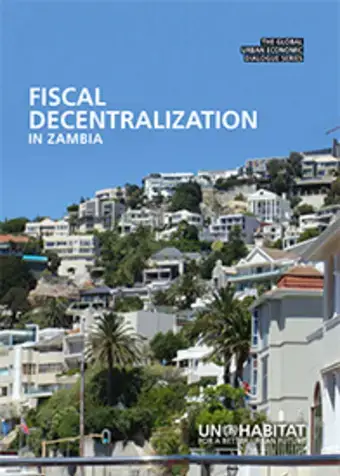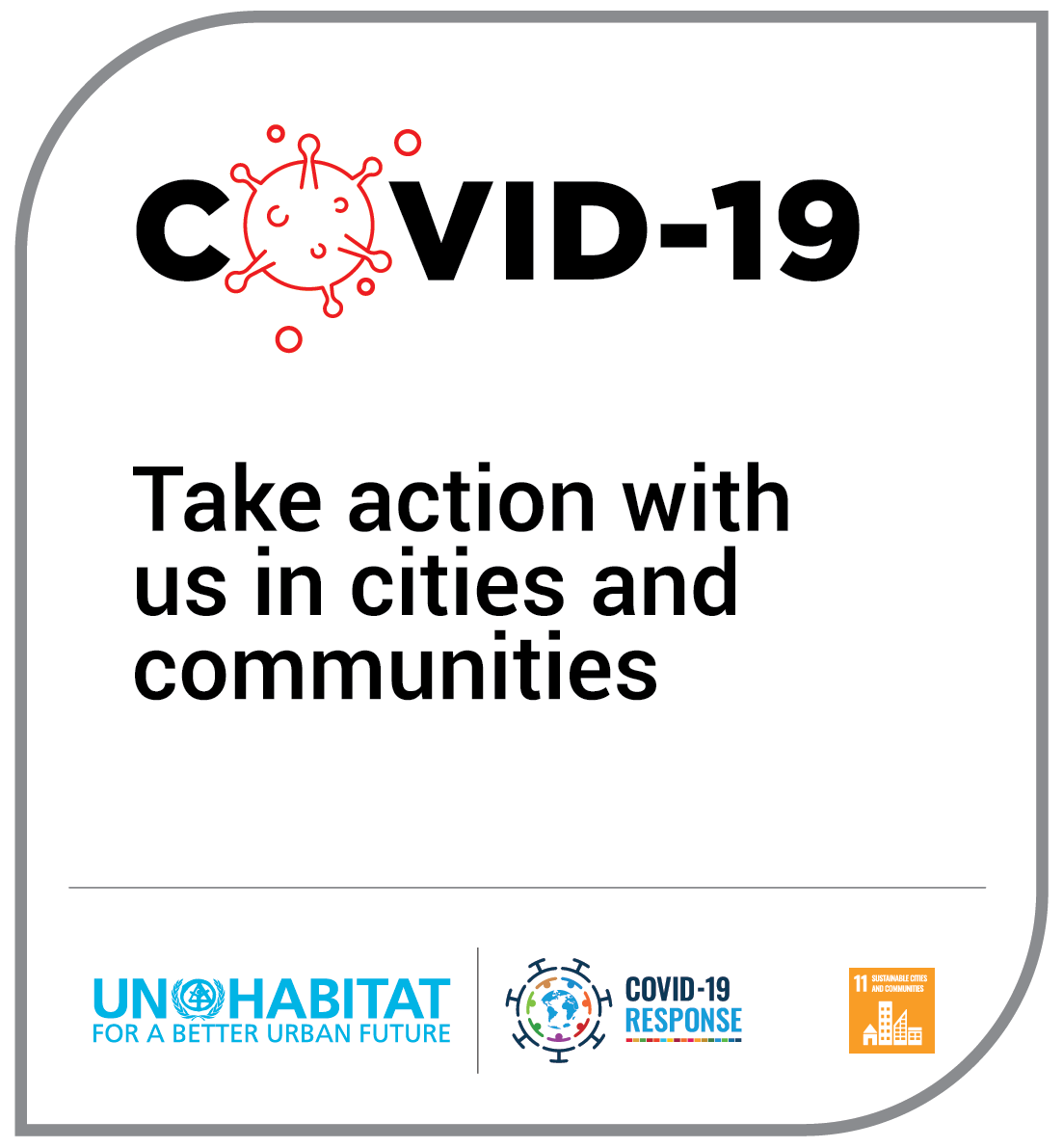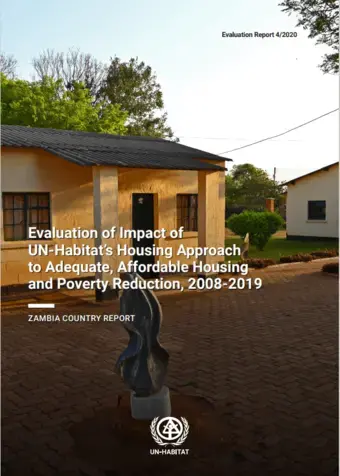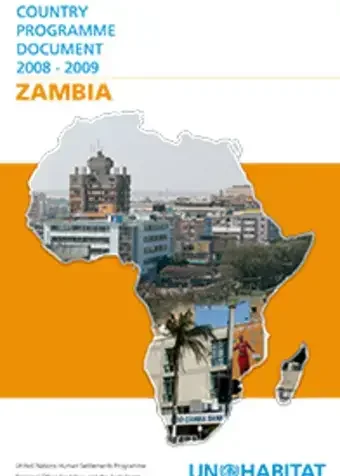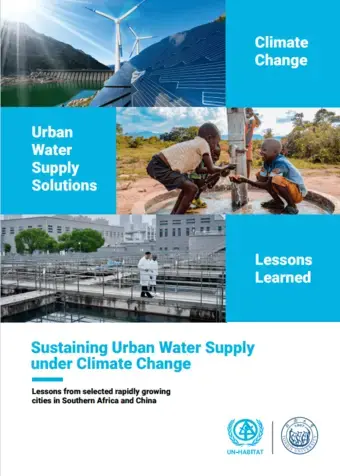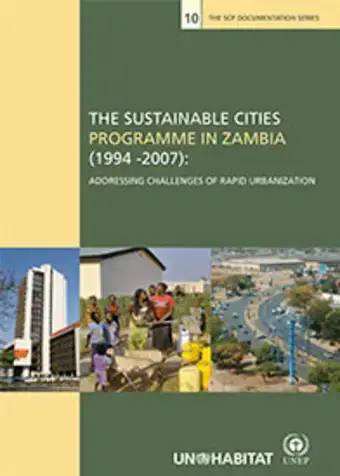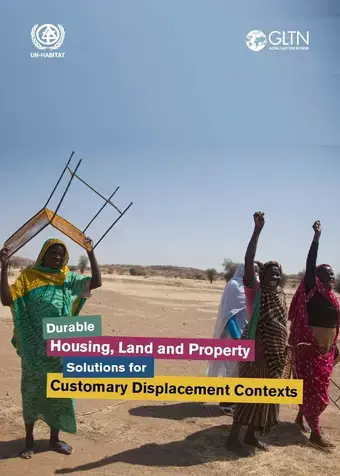Overview
UN-Habitat is working with the government of the Republic of Zambia in formulating the National Urbanisation Policy (NUP). This is a deliberate government-led process of coordinating and rallying various actors for establishing a shared vision for the desired urbanization within 20-30 years horizon or more that intends to support poverty reduction, spatial planning, land management, housing, basic and social services, infrastructural development and coordination of large-scale investments. In the recent past, UN-Habitat supported the government and selected local authorities in Disaster Risk Reduction, consultations for the draft Land Policy and land tenure security in customary and informal settlements. In support to government effort to resettle and integrate former refugees in the northwest and western part of the country, UNHabitat under the UN-Zambia joint programme, Promoting Human Security through Sustainable Resettlement, assisted in the opening up of access roads and construction of low-cost demonstration houses using green technology in Meheba and Mayukwayukwa Refugee settlements.
Country: Overview
Country: Overview
Country: Overview
Currently 40% of the Zambian population are in urban areas with an estimated 70% living in informal settlements which are characterized by significant social, economic and environmental problems. Most of the cities in Zambia are characterized by Low local economic development; absence of supportive city form and functioning system; and Weak institutional and regulatory framework for urban development.
Country: Impact and Urban Numbers
Over 23,000 Households benefited from the DRR flood control drainage in Kanyama ward 10 by Lusaka City Council with UN-Habitat support
18,400 households were enumerated and mapped using the GLTN’s STDM for issuance of occupancy licenses to improve security of tenure
Over 10,000 former refugees and host communities in Meheba and Mayukwayukwa resettlement scheme benefited from the programme
An estimated 70% of urban population lives in informal settlements which are characterized by significant social, economic and environmental problems
Zambia faces a huge deficit of housing estimated at 1.5 million units of which 40% is for urban dwellers and 60% for rural dwellers
Urban Population (2018): 43.5%
Urban Growth Rate (2015-2020): 4.23%
Country Beneficiaries
“My chiefdom is situated between two cities of Lusaka and Kabwe. As they are rapidly expanding they will find that my people have already secured the land.”
Chief Chamuka, His Royal Highness Chief of the Lenje people, Central Zambia
Donors and partners
The success of UN-Habitat work in Zambia has been dependence on strong partnerships with Government Ministries, local Authorities, civil societies and traditional leaders, the chiefs who administer the majority of land in the country under customary law. UN-Habitat in close collaboration with GLTN has been supporting the Ministry of Land in the consultation process of the Draft land policy as well as local authorities and the chiefs in community participatory action toward improving the security of tenure for all.
Donors
Contact
Highlighted Publications
Legacy content
- Total value of UN-Habitat investments (2008-2013): US$ 100,000
- Total number of UN-Habitat projects (2008-2013): 1 project
- Main donors: Booyoung
- Implementing partners: WFP, UNICEF, ILO, UNCTAD
General information
Capital: Lusaka
Major cities: Lusaka, Kitwe, Ndola, Kabwe, Chingola, Mufulira, Luanshya, Livingstone, Kasama, Chipata.
- Population: 14.08 Million
- GDP: US$ 20.68 Billion
- GDP growth: 7.3%%
- Urban population (annual %): 4.0%
- Population growth rate (average annual %): 3.2%
- Urban population growth rate (average annual %): 4.3%
- Rural population growth rate (average annual %): 2.5%
Source: World Bank 2012
UN-Habitat projects in Zambia
Strengthening Urban Planning Capacity in Lusaka, Zambia
The aim of this proposal is to assist the Government of the Republic of Zambia (GRZ) and the Lusaka City Council (LCC) in building adequate institutional capacity at both central and local levels regarding urban planning, especially concerning city extensions. This includes the support to the development of a robust urban policy and regulatory framework for Zambia and the Lusaka city in particular.
- Duration: January 2013 - December 2013
- Value: US$ 100,000
- Donor: Booyoung
- Implementing partners: WFP, UNICEF, ILO, UNCTAD
- Location: Lusaka
Images

